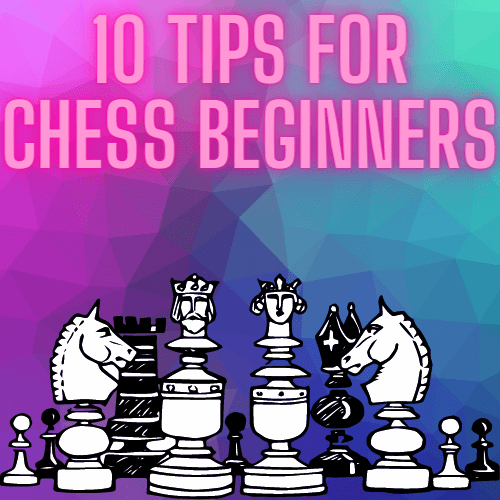Top 10 Chess Tips For Beginners
Master the Basics and Elevate Your Game with These Essential Chess Tips

Chess is a timeless game that has fascinated people for centuries. Whether you're a complete novice or have just started dipping your toes into the world of chess, there are essential tips and strategies that can help you improve your game. In this article, we'll explore the top 10 chess tips for beginners, designed to set you on the path to becoming a more skilled and confident chess player.

- Learn the Rules
Before diving into strategy and tactics, it's crucial to have a solid understanding of the basic rules of chess. Familiarize yourself with how each piece moves, the objective of the game (checkmate), and the rules governing special moves like castling and en passant.
- Control the Center
The center of the chessboard is where the action happens. Controlling the center squares (d4, d5, e4, e5) provides you with greater mobility for your pieces and more strategic options. Aim to occupy these squares early in the game.
- Develop Your Pieces
Don't leave your pieces languishing on their starting squares. Develop your knights and bishops to active positions, preferably toward the center. Good piece development is essential for effective control of the board.
- King Safety
Always prioritize the safety of your king. This means castling early to tuck your king away in a corner and connect your rooks. A safe king is less vulnerable to threats and can help facilitate your piece coordination.
- Think About Your Opponent's Moves
Chess is a two-player game, and your opponent's moves matter just as much as your own. Try to anticipate your opponent's plans and threats. By doing so, you can prepare your own moves and avoid falling into traps.
- Don't Neglect Pawn Structure
Pawn structure is often underestimated by beginners, but it's a critical aspect of chess strategy. Avoid creating weaknesses in your pawn structure, such as isolated pawns or pawn islands. Plan your pawn moves carefully to maintain a solid structure.
- Tactics and Combinations
Chess is a game of tactics and combinations. Learn common tactical motifs like pins, forks, skewers, and discovered attacks. Solving puzzles and practicing tactics regularly will improve your ability to spot these opportunities in your games.
- Endgame Fundamentals
While it may seem distant, the endgame is an essential phase of chess. Learn the basics of endgame theory, such as king and pawn versus king endings, and how to convert material advantages into wins. Strong endgame skills can turn a draw into a victory.
- Time Management
Managing your time on the chess clock is crucial, especially in fast-paced games. Avoid spending excessive time on one move, and practice maintaining a balance between spending time on critical decisions and making faster moves for less critical positions.
- Study and Learn
Finally, the road to becoming a better chess player is a continuous journey of learning and improvement. Study games played by grandmasters, read books on chess strategy, and analyze your own games to identify areas for improvement. Joining a chess club or playing online can also provide valuable experience and learning opportunities.
Conclusion
Chess is a rich and rewarding game that can be enjoyed at any skill level. These top 10 chess tips for beginners are just the beginning of your chess journey. As you continue to play, study, and refine your skills, you'll discover that chess is not just a game but a lifelong pursuit of strategic excellence. Embrace the challenge, and remember that every game is an opportunity to learn and grow as a chess player.

